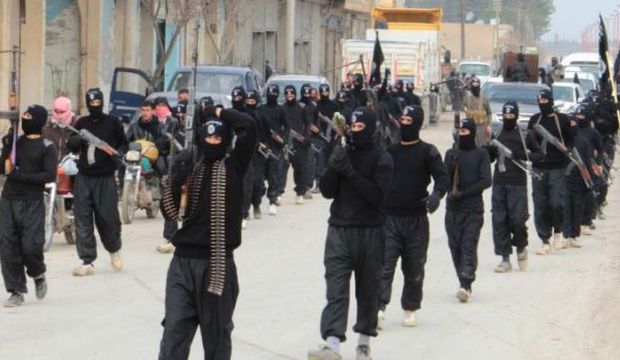The air campaign against the positions of the Islamic State of Iraq and Syria (ISIS) have become a source of ridicule and sarcasm in the US media for its meager results and inefficiency in halting the advance of the group’s fighters. Expensive weapons are being used, costly sorties are being carried out and sophisticated, laser-guided missiles are being fired at the group’s positions, without much success in preventing the march of ISIS fighters in both Syria and Iraq.
In the face of growing criticism of his strategy in over two months of air strikes, US President Barack Obama organized a meeting this week with the army chiefs from the 21 countries participating in the international campaign against ISIS. The coalition is taking on a group whose fighters, we were first told, number 12,000, then the estimate increased to 15,000 and finally more than 20,000. No one knows precisely how many fighters have joined ISIS ranks; but whatever the exact figure, it does not compare to the number of fighters and weaponry the international coalition, the Kurdish Peshmerga forces or the Iraqi army possesses.
We are facing a mysterious organization that has altered the reality on the ground and imposed a war that may lead to the dismantling of states. There is nothing logical about how ISIS has extended its influence and seized control of vast expanses of land in Iraq and Syria—larger than the size of Britain—sometimes engaging in clashes near the border with Lebanon. The territory ISIS controls is not like the mountainous cave complex of Tora Bora in Afghanistan where the Taliban hid from US forces. Instead, ISIS roams freely in an area that encompasses major cities, oil refineries and electricity plants. The organization levies taxes, sells oil and communicates with the world via modern technology. It has successfully spread its propaganda to attract new recruits, lured in by firebrand discourse calling for the establishment of a caliphate and the provision of weapons, salaries and marriages, or what has been dubbed “sexual jihad.”
Some analysts have begun to warn that the war on ISIS will cost the US alone more than 20 billion US dollars. Western political and military personalities are warning it will be a prolonged war, extending up to 30 years, according to former US Secretary of Defense Leon Panetta. That is, the war on ISIS will be much longer than the two world wars combined.
The expansion of ISIS and the state of disarray among its opponents perhaps tempted the Houthi rebels in Yemen and their allies to swoop on the government in Sana’a in what is another bizarre scenario. The advances by extremist groups in Libya to control the country by declaring their own government and storming the capital Tripoli may also be, in part, a repercussion of ISIS’s successes and the slow progress on the part of the international community in confronting and defeating the group. The bitter truth is that we are floundering in the face of movements that are destroying countries, dismantling their social fabric and fanning the flames of sectarianism which continues to threaten the entire region.
Apart from any conspiracy theories, there are many indications that, following its remarkably swift ascendance, ISIS, like Al-Qaeda, is going to be on the scene for many years to come. ISIS emerged at a time when Al-Qaeda has grown weak and old; ISIS is seeking to replace Al-Qaeda as a magnet for new generations of extremists seeking a battleground and banner. There are some who have become convinced that defeating ISIS will not see off Islamic extremism for good. ISIS may become exhausted, with several of its leaders killed or forced to flee the battlefield, only for another jihadist movement to emerge to take its place. However until that happens, ISIS will still have contributed to the dismantling of the central governments of Iraq and Syria, completely changing the regional web of alliances on the ground. Things are not going to return to normal now that a new reality has been imposed on the region, with extremists fueling sectarianism, sowing fear in the minds of minorities whose members have long been part of the region’s social fabric. Iraq is already being dismantled since ISIS has widened the gap between Sunnis and Shi’ites, targeted Christians and Yazidis and strengthening calls for an independent Kurdistan and the arming of the Kurds.
All of this has shifted the view on the situation in Syria as Washington delays discussions on the fate of Syrian President Bashar Al-Assad. The collapse of the Syrian opposition in ISIS’s wake has invalidated all the former strategies that were already complicated by the growing disputes within opposition ranks. Today, Western countries are indirectly cooperating with Assad’s regime as the coalition’s bombardment of ISIS reduces pressure on Syrian government forces. At the same time, military training of opposition groups will require time during which the battlefield will change again. Despite the mysterious manner in which it emerged, ISIS would not have succeeded had it not been for the prevailing circumstances in the region.
